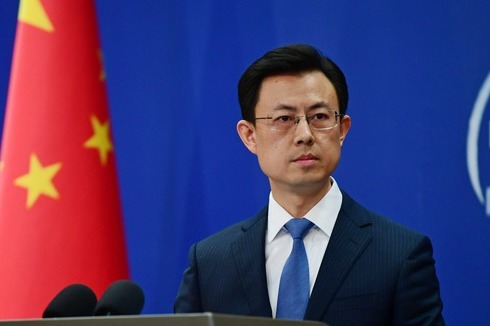Study highlights neurological impact of COVID-19

A study in the United Kingdom has linked severe COVID-19 with a debilitating form of nerve damage, providing further evidence that novel coronavirus infection may have significant neurological implications.
Researchers found that 16 percent of COVID-19 patients discharged from intensive care units at a Cambridge hospital displayed symptoms relating to mononeuritis multiplex, a condition which can cause pain and loss of motor ability and sensation in different areas of the body.
" (The research) highlights an important neurological complication of COVID-19, which detrimentally affects the long-term outcomes of patients and markedly influences their rehabilitation needs," the team at the Cambridge University Hospital NHS Foundation Trust said in the study, published on the preprint server Medrxiv.
Of the 69 patients discharged from the Cambridge ICUs, 11 showed signs of mononeuritis multiplex. Of these 11, all showed some form of motor or sensory "focal deficits" in at least one arm or a leg, and three patients were affected in all four limbs.
"Given that this complication is evident in a significant proportion of the patients discharged from the intensive care units of a single hospital, the rehabilitation burden globally could be substantial," said the authors of the study, which includes Stephen Sawcer, a professor from the Department of Clinical Neurosciences at Cambridge University.
Mononeuritis multiplex can be brought on by a number of nerve conditions, and the authors say that it remains unclear why it manifests itself in some COVID-19 patients. One potential explanation relates to a syndrome seen in some patients known as cytokine storm, where an exaggerated response from a hyperactive immune system can damage nerves and other tissues.
The authors say that mononeuritis multiplex may be going unreported in many instances, as people who have required prolonged mechanical ventilation often experience similar symptoms from a separate condition known as Intensive Care Unit Acquired Weakness, or ICUAW, which is associated with muscle loss.
"Given the high expectation of ICUAW, these focal deficits may go unnoticed," the study said. "We strongly urge detailed neurological assessment of patients with post-COVID-19 ICUAW, especially those with asymmetric weakness, as we suspect that many such patients are likely to have focal deficits resulting from their COVID-19 illness."
The research adds to a widening array of symptoms associated with COVID-19, which was predominantly referred to as a respiratory illness during the early days of the pandemic.
Scientists in China were among the first to report neurologic complications in COVID-19 patients in a paper published in April. The study, which was led by researchers at Huazhong University of Science and Technology in Wuhan, found that around one-third of 214 patients hospitalized with novel coronavirus infection displayed neurological symptoms, which included impaired consciousness, muscle injury, and disruption of blood supply to the brain.
































